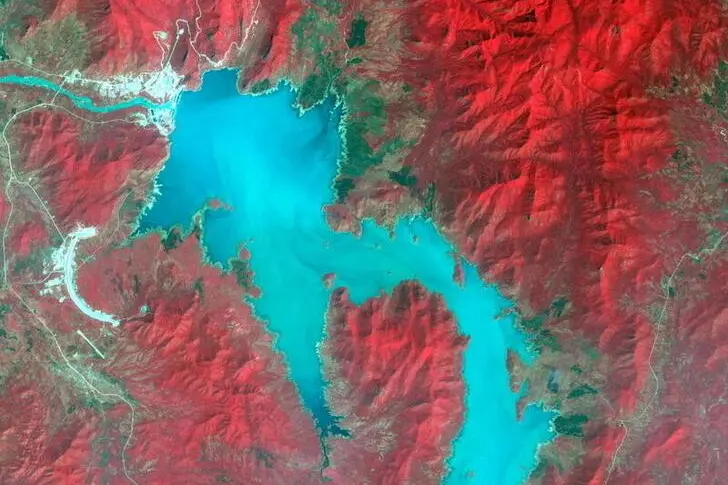PHOTO
Ethiopia has said that it is seeking an agreement with Egypt and Sudan on “the second filling only” of the Grand Ethiopian Renaissance Dam (GERD).
The statement came as the country set its goals for the next stage of negotiations on the controversial dam with the two downstream countries. Meanwhile, Ethiopia also renewed its adherence to the African Union’s (AU) sponsorship of the negotiations.
Speaking at a press conference on Saturday, Ethiopian Ministry of Foreign Affairs spokesperson Dina Mufti said that his country is currently seeking to reach an agreement on the second filling of the dam’s reservoir.
Mufti said that Egypt and Sudan are still seeking to internationalise the Ethiopian dam. He also affirmed his country’s adherence to its position to end the negotiation process on the Nile Dam under the auspices of the AU.
He added that he considers the quartet mediation demanded by the two downstream countries already existed as monitoring over the past period.
Mufti pointed out that, without a lake behind the dam, the project could not address the drought problem that occurs in the two downstream countries.
“We have no objection to signing a comprehensive agreement, but at the present time we want to reach an agreement on the second filling of the dam lake,” he added, “Ethiopia can fill the dam lake within two years by taking advantage of the country’s two rainy seasons.”
Sudanese Minister of Energy Jadin Ali Obaid stressed that the second filling of the GERD will affect the production of electricity in his country, warning of an energy shortage.
In media statements on Saturday, Obaid said that 50% of Sudan’s electricity production depends on hydro-generation. He indicated that “Ethiopia’s insistence on implementing the second filling of the dam makes us look out for the worst possibilities”.
He warned of a shortage of electricity production during the months of June and July. This will occur particularly as the water levels behind the reservoirs are at their lowest levels, and the autumn season is in its early stages.
Obaid expressed his hope that Egypt, Sudan, and Ethiopia would reach an agreement on the dam “for the benefit of all”.
Sudan has changed its policy of operating the reservoirs to cope with the effects of the GERD, after the failure of the last round of negotiations, which were held in the Democratic Republic of the Congo’s (DRC) capital, Kinshasa, last month.
Sudan has repeatedly warned of the repercussions potentially posed by the dam’s second filling, which Ethiopia insists on proceeding with without a binding legal agreement.
Meanwhile, Sudan’s Minister of Water Resources and Irrigation Yasser Abbas said that the second filling process threatens half of the country’s population.
After the first filling carried out by Ethiopia last year, drinking water stations in Sudan ground to a halt for over three weeks. This was followed by nationwide flooding that caused extensive damage in the following two months.
On Wednesday, Abbas indicated that the GERD file needs political will to reach an agreement, adding that “Ethiopia wants guidelines, not an agreement”. He noted that the international community and the Ethiopians know the impact of this dam.
© 2021 Daily News Egypt. Provided by SyndiGate Media Inc. (Syndigate.info).





















